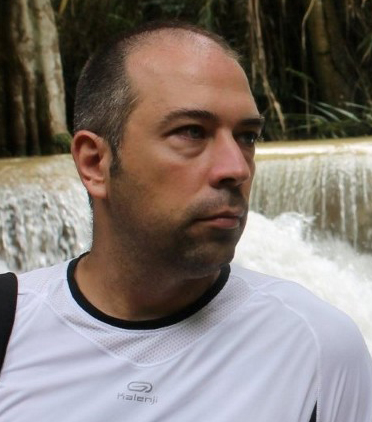webinars
Contents |
July 1, 2015
OpenAIRE Guidelines: Promoting Repositories Interoperability and Supporting Open Access Funder Mandates
Webinar Date: Wednesday, 1 July 2015, 10:00am-11:15am EDT (UTC 14:00) World Clock: http://bit.ly/pprincipe)
Abstract: The OpenAIRE Guidelines for Data Source Managers provide recommendations and best practices for encoding of bibliographic information in OAI metadata. They have adopted established standards for different classes of content providers: (1) Dublin Core for textual publications in institutional and thematic repositories; (2) DataCite Metadata Kernel for research data repositories; and (3) CERIF-XML for Current Research Information Systems.
The principle of these guidelines is to improve interoperability of bibliographic information exchange between repositories, e-journals, CRIS and research infrastructures. They are a means to help content providers to comply with funders Open Access policies, e.g. the European Commission Open Access mandate in Horizon2020, and to standardize the syntax and semantics of funder/project information, open access status, links between publications and datasets. The presenters will provide an overview of the guidelines, implementation support in major platforms and tools for validation.
Presenters:
Categories: OpenAIRE | bibliographic information exchange Webinar Type: Overview
Free
Free
US$25
Not a DCMI Individual Member? Join now!
After registering you will receive a confirmation email containing information about joining the Webinar. After the webinar broadcast, you will have unlimited access to the presentation.
September 9, 2015
Implementing Linked Data in Low-Resource Conditions (RESCHEDULED)
Webinar Date: Wednesday, 17 June 2015 9 September 2015, 10:00am-11:15am EDT (UTC 14:00) World Clock: http://bit.ly/webinar-keiser)
Abstract: Opening up and linking data is becoming a priority for many data producers because of institutional requirements, or to consume data in newer applications, or simply to keep pace with current development. Since 2014, this priority has gaining momentum with the Global Open Data in Agriculture and Nutrition initiative (GODAN). However, typical small and medium-size institutions have to deal with constrained resources, which often hamper their possibilities for making their data publicly available. This webinar will be of interest to any institution seeking ways to publish and curate data in the Linked Data World.
Keizer and Caracciolo will provide an overview of bottlenecks that institutions typically face when entering the world of open and linked data, and will provide recommendations on how to proceed. They will also discuss the use of standard and linked vocabularies to produce linked data, especially in the area of agriculture. They will describe AGRISAs, a web-based resource linking agricultural datasets as an example of linked data application resulting from the collaboration of small institutions. They will also mention AgriDrupal, a Drupal distribution that supports the production and consumption of linked datasets.
Redux: An update of a webinar first presented in 2013.
Presenters:
Categories: open data | developing countries | AGRISAs | linking datasets |
Drupal | publishing/curating data | low-resource conditions
Webinar Type: Innovative practices

Not a DCMI Individual Member? Join now!
After registering you will receive a confirmation email containing information about joining the Webinar. After the webinar broadcast, you will have unlimited access to the presentation.
May 27, 2015
Digital Preservation Metadata and Improvements to PREMIS in Version 3.0
Webinar Date: Wednesday, 27 May 2015, 10:00am-11:15am EDT (UTC 14:00) World Clock: http://bit.ly/Webinar-Dappert)
Abstract: The PREMIS Data Dictionary for Preservation Metadata is the international standard for metadata to support the preservation of digital objects and ensure their long-term usability. Developed by an international team of experts, PREMIS is implemented in digital preservation projects around the world, and support for PREMIS is incorporated into a number of commercial and open-source digital preservation tools and systems. The PREMIS Editorial Committee coordinates revisions and implementation of the standard, which consists of the Data Dictionary, an XML schema, and supporting documentation.
The PREMIS Data Dictionary is currently in version 2.2. A new major release 3.0 is due out this summer. This webinar gives a brief overview over why digital preservation metadata is needed, shows examples of digital preservation metadata, shows how PREMIS can be used to capture this metadata, and illustrates some of the changes that will be available in version 3.0.
Presenter:
Categories: PREMIS 3.0 | preservation metadata | Webinar Type: Standard update
May 13, 2015
From 0 to 60 on SPARQL queries in 50 minutes
Webinar Date: Wednesday, 13 May 2015, 10:00am-11:15am EDT (UTC 14:00) World Clock: http://bit.ly/Webinar-Ethan_Gruber)
Abstract: This webinar provides an introduction to SPARQL, a query language for RDF. Users will gain hands on experience crafting queries, starting simply, but evolving in complexity. These queries will focus on coinage data in the SPARQL endpoint hosted by http://nomisma.org: numismatic concepts defined in a SKOS-based thesaurus and physical specimens from three major museum collections (American Numismatic Society, British Museum, and Münzkabinett of the Staatliche Museen zu Berlin) linked to these concepts. Results generated from these queries in the form of CSV may be imported directly into Google Fusion Tables for immediate visualization in the form of charts and maps.
This webinar was first presented as a training session in the LODLAM Training Day at SemTech2014.
Presenter:

|
Ethan Gruber Ethan Gruber is the Web and Database Developer for the American Numismatic Society (ANS). With almost ten years of experience in digital humanities and cultural heritage web development projects, Ethan is responsible for developing a new public interface for the society's collections of objects and archives. He is the chief architect of Numishare, an open-source framework for delivering coin collections online and various ANS projects which implement this software: Online Coins of the Roman Empire and Coin Hoards of the Roman Republic. |
Categories: SPARQL | Resource Description Framework (RDF) | Webinar Type: Praxis
April 8, 2015 - Andreas Rauber
Approaches to Making Dynamic Data Citable: Recommendations of the RDA Working Group
Webinar Date: Wednesday, 8 April 2015, 10:00am-11:15am EDT (UTC 14:00) World Clock: http://bit.ly/Webinar-Andreas_Rauber)
Abstract: Being able to reliably and efficiently identify entire or subsets of data in large and dynamically growing or changing datasets constitutes a significant challenge for a range of research domains. In order to repeat an earlier study, to apply data from an earlier study to a new model, we need to be able to precisely identify the very subset of data used. While verbal descriptions of how the subset was created (e.g. by providing selected attribute ranges and time intervals) are hardly precise enough and do not support automated handling, keeping redundant copies of the data in question does not scale up to the big data settings encountered in many disciplines today. Furthermore, we need to be able to handle situations where new data gets added or existing data gets corrected or otherwise modified over time. Conventional approaches, such as assigning persistent identifiers to entire data sets or individual subsets or data items, are thus not sufficient.
In this webinar we will review the challenges identified above and discuss solutions that are currently elaborated within the context of the working group of the Research Data Alliance (RDA) on Data Citation: Making Dynamic Data Citeable. The approach is based on versioned and time-stamped data sources, with persistent identifiers being assigned to the time-stamped queries/expressions that are used for creating the subset of data. We will further review results from the first pilots evaluating the approach.
Presenter:

|
Andreas Rauber Andreas Rauber is Associate Professor at the Department of Software Technology and Interactive Systems (IFS) at the Vienna University of Technology (TU-Wien). He furthermore is president of AARIT, the Austrian Association for Research in IT and a Key Researcher at Secure Business Austria (SBA-Research). He is co-chairing the RDA Working Group on Data Citation together with Ari Asmi and Dieter van Uytvanck. He received his MSc and PhD in Computer Science from the Vienna University of Technology in 1997 and 2000, respectively. In 2001 he joined the National Research Council of Italy (CNR) in Pisa as an ERCIM Research Fellow, followed by an ERCIM Research position at the French National Institute for Research in Computer Science and Control (INRIA), at Rocquencourt, France, in 2002. From 2004-2008 he was also head of the iSpaces research group at the eCommerce Competence Center (ec3). |
Categories: Research Data Alliance (RDA) | citable dynamic data Webinar Type: Overview
March 4, 2015 - Caterina Caracciolo & Armando Stellato
VocBench 2.0: A Web Application for Collaborative Development of Multilingual Thesauri
Webinar Date: Wednesday, 4 March 2015, 10:00am-11:15am EST (UTC 15:00 World Clock: http://bit.ly/DCMI-Webinar-Stellato)
Abstract: VocBench is a web-based platform for the collaborative maintenance of multilingual thesauri. VocBench is an open source project, developed in the context of a collaboration between the Food and Agricultural Organization of the UN (FAO) and the University of Rome Tor Vergata. VocBench is currently used for the maintenance of AGROVOC, EUROVOC, GEMET, the thesaurus of the Italian Senate, the Unified Astronomy Thesaurus of Harvard University, as well as other thesauri. VocBench has a strong focus on collaboration, supported by workflow management for content validation and publication. Dedicated user roles provide a clean separation of competencies, addressing different specificities ranging from management aspects to vertical competencies in content editing, such as conceptualization versus terminology editing. Extensive support for scheme management allows editors to fully exploit the possibilities of the SKOS model, as well as to fulfill its integrity constraints. VocBench has been open source software since version 2 -- open to a large community of users and institutions supporting its development with their feedback and ideas. During the webinar we will demonstrate the main features of VocBench from the point of view of users and system administrators, and explain in what way you may join the project.
Presenters:
Presentation slides: PDF
November 19, 2014 - Phil Barker & Lorna Campbell
The Learning Resource Metadata Initiative, describing learning resources with schema.org, and more?
Webinar Date: Wednesday, 19 November, 2014, 10:00am-11:15am EST (UTC 15:00) World Clock: http://bit.ly/1pKiCUj)
Abstract: The Learning Resource Metadata Initiative (LRMI) is a collaborative initiative that aims to make it easier for teachers and learners to find educational materials through major search engines and specialized resource discovery services. The approach taken by LRMI is to extend the schema.org ontology so that educationally significant characteristics and relationships can be expressed. In this webinar, Phil Barker and Lorna M. Campbell of Cetis will introduce schema.org and present the background to LRMI, its aims and objectives, and who is involved in achieving them. The webinar will outline the technical aspects of the LRMI specification, describe some example implementations and demonstrate how the discoverability of learning resources may be enhanced. Phil and Lorna will present the latest developments in LRMI implementation, drawing on an analysis of its use by a range of open educational resource repositories and aggregators, and will report on the potential of LRMI to enhance education search and discovery services. Whereas the development of LRMI has been inspired by schema.org, the webinar will also include discussion of whether LRMI has applications beyond those of schema.org.
Presenters:
Presentation slides: PDF
Categories: Learning Resource Metadata Initiative (LRMI) | schema.org | search engines | markup languages
Webinar Type: Praxis
May 21, 2014 - Seth van Hooland & Ruben Verborgh
How to pick the low hanging fruits of Linked Data
Webinar Date: Wednesday, 21 May, 2014, 10:00am EDT (World Clock: 14:00 UTC http://bit.ly/1qLSeq1)
Abstract: The concept of Linked Data has gained momentum over the past few years, but the understanding and the application of its principles often remain problematic. This webinar offers a short critical introduction to Linked Data by positioning this approach within the global evolution of data modeling, allowing an understanding of the advantages but also of the limits of RDF. After this conceptual introduction, the fundamental importance of data quality in the context of Linked Data is underlined by applying data profiling techniques with the help of OpenRefine. Methods and tools for metadata reconciliation and enrichment, such as Named-Entity Recognition (NER), are illustrated with the help of the same software. This webinar will refer to case-studies with real-life data which can be re-used by participants to continue to explore OpenRefine at their own pace after the webinar. The case-studies have been developed in the context of the handbook "Linked Data for Libraries, Archives and Museums", which will be published by Facet Publishing in June 2014.
Presenters:
Handout for the webinar: PDF Presentation slides: PDF
Categories: Metadata Modeling | Transactions on Metadata | Resource Description Framework (RDF)












